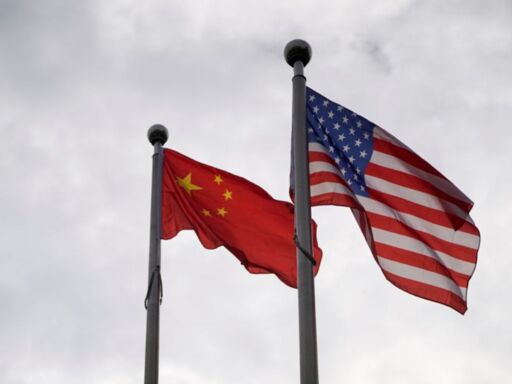from Hotznplotzn@lemmy.sdf.org to world@lemmy.world on 18 Nov 12:34
https://lemmy.sdf.org/post/45823945
cross-posted from: lemmy.sdf.org/post/45823936
Beijing has mastered the art of punching above its weight in multilateral organizations to wield substantially more influence than its membership positions otherwise entitle it to. This is true in a variety of organizations, from the World Health Organization to the multilateral development banks. But perhaps the best example is the United Nations (UN), which is treated by the Chinese Communist Party (the CCP) less as a neutral forum and more as an arena to rewrite norms in its favour.
[…]
Over the last decade, Chinese diplomats have pursued a systematic campaign to place loyal nationals in senior UN posts, leveraging financial contributions, vote trading, and bilateral pressure. Since 2019, Chinese nationals have headed four UN specialized agencies—the Food and Agriculture Organization, the International Telecommunication Union, the International Civil Aviation Organization, and the UN Industrial Development Organization—each critical to setting international standards.
[…]
This concentration of influence gives Beijing disproportionate sway over how global norms are written, codified, and monitored. The heads of these agencies shape global standards for digital infrastructure, aviation safety, and industrial technology—fields central to China’s long-term economic and security strategy.
[…]
While China still casts fewer vetoes on the UN Security Council than Russia or the US, when it does, it is overwhelmingly in tandem with Moscow, shielding regimes accused of atrocities in such countries as Syria, North Korea, and Sudan. An analysis of voting patterns shows that China consistently backs states resisting Western-led resolutions on human rights and accountability.
Beijing has also mastered the UN’s procedural grey zones. An in-depth Washington Post investigation revealed how Chinese government-linked NGOs—many explicitly pledging loyalty to the CCP—exploit consultative status in Geneva to disrupt human-rights hearings, harass dissidents, and dilute references to abuses in Xinjiang and Hong Kong. Nearly half of all Chinese NGOs accredited at the UN are effectively extensions of the state. By weaponizing the openness of the UN system, Beijing converts what was meant to be a platform for civil society into a shadow arm of state influence.
[…]
While boasting of its growing contributions, Beijing has also become notorious for delayed payments to the UN, at times holding back dues for nearly a year and deepening the organization’s liquidity crisis. Simultaneously, its voluntary funding—directed toward specific programs in development, technology, or infrastructure—channels money into projects that amplify Chinese influence rather than universal priorities. The result is quiet leverage: financial dependency that deters criticism.
[…]
Leadership contests for key agencies are often uncontested by Western candidates, and funding cuts have left the field open to states willing to pay without any questions. Beijing fills the vacuum, not by brute force but by relentless attendance—showing up, lobbying, and organizing, while others retreat.
If this continues, the UN of the next decade may resemble something closer to a managed marketplace of state narratives than a rules-based community. The remedy is not abandonment but engagement: reclaiming influence by competing seriously for leadership posts, funding independent oversight, and building coalitions of democracies and reform-minded states that still believe in transparency and accountability. The UN cannot be saved by nostalgia. It will survive only if its largest non-Chinese stakeholders treat it as worth defending from within.

#world
threaded - newest
I just pointed this out elsewhere. China has learned how to play the West’s own game against them. And because they actually kmow how to make and execute long-term plans, once they rise to power they will stay there. We should all be having our kids learn to speak chinese.